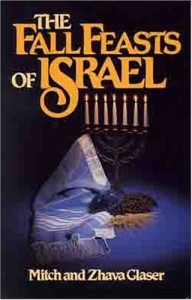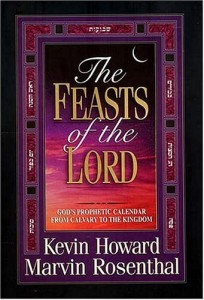These are your words and God does expect us to walk perfect or He would not had said them.
Your words…… (God isn’t expecting perfection from us — His Son has provided that.)
I have counted 94 scriptures with the word perfect in it but Rev. 3-2 got me below when he was talking to the angel of the Sardis church and there were a few who have not defiled their garments and would walk in white and found worthy. And Jesus was talking to supposed Christians.
Here are 2 scriptures from God to tell us tobe perfect….but there at 92 others in the Blue Book..,
1. Matt. 5:48 Be ye therefore perfect, even as your Father which is in heaven is perfect.
2. 1 Kings 8:61 Let your heart therefore be perfect with the LORD our God, to walk in his statutes, and to keep his commandments, as at this day.
The idea of perfect is probably better translated — blameless. This is a snippet from the “Midrash Key” which probably can better explain the idea of blameless at the time of Jesus.
Aiming for God’s Standard (Deut. 18:13; Matt. 5:48) Jesus addresses another topic, that of “perfection” or “blamelessness.” In Matthew 5:48, Yeshua practically paraphrases Deuteronomy 18:13; note both passages: “Be perfect, therefore, as your heavenly Father is perfect” (Matthew 5:48) “You must be blameless before the LORD your God” (Deuteronomy 18:13). The similarities when reading Deuteronomy 18:13 in the Septuagint are even more evident: “You shall be perfect before the Lord Your God.” Yeshua probably spoke and taught in Mishnaic Hebrew.
About two centuries before Jesus, a team of Jewish scholars translated the Hebrew Testament into Greek. This translation is called “The Septuagint” and is abbreviated “LXX” because 70 scholars purportedly did the translating. We often fail to remember that Yeshua’s words were translated by the Gospel authors from Mishnaic Hebrew into Greek. This is why a comparison of Jesus’ words in Matthew with the LXX of Deuteronomy is particularly relevant; both are translated from Hebrew into Greek. The original word used in Deuteronomy is probably also the same word spoken by Yeshua, best translated into English as “blameless” rather than “perfect.”
The Hebrew word for peace, shalom, is derived from the root word shalem, which means “wholeness and completion.” It is bound up with the word shlemut, perfection – the goal towards which we can only aspire.
So to be “perfect” is to be at complete peace with God and others, at least as much as possible.160 We are at peace with God when we are justified by faith in Jesus Christ and when we subsequently walk closely with him. Yeshua knows we are sinners and can never be blameless in the practical, absolute sense. Does he make this seemingly unrealistic demand merely to convict us of sin and remind us of our depravity before God? Although we cannot prove his intent, perhaps part of his intent was to reinforce the idea that “all have sinned and fall short of the glory of God.” But, on the other hand, people can and do earn the title “blameless” in the Biblical sense, and I think Yeshua’s primary intent leads us in that direction. Individuals labeled “blameless” in Scripture are still obviously sinners. Thus blameless is not the equivalent of “sinless.” In some ways, the Biblical concept of blamelessness is exactly opposite of traditional Wesleyan “holiness” views.
The Role Model Approach
Yeshua takes the command to be blameless and attaches it directly to the character of God. God Himself is the standard of blamelessness his disciples should emulate. Rather than a mere code of 613 mitzvot, the very character of God is the rubric. With the incarnation, Jesus demonstrated how Yahweh would live if confined to mortal limitations. Yeshua had no sin nature but was human like the pre-fallen Adam, and could be tempted.
Thus his character becomes worthy of imitation; we do not imitate Jesus’ life, for we have neither his authority nor unique mission. We have no authority to turn over tables, nor are we to roam the countryside with bands of disciples. Yet we are called upon to imitate his godly way of living, his truly perfect and blameless walk.
Thus Jesus’ character helps us to understand how to “be perfect as your father in heaven is perfect.” If Yeshua is indeed restating and amplifying the mitzvah from Deuteronomy (to pursue blamelessness), we must remember that the sinner saved by grace can only be perfect in the sense of legal (forensic) righteousness. God chooses to view us as sinless because we are engulfed in the righteousness of the Savior. At conversion, we legally exchange our sinfulness for the righteousness of Jesus.
Yet if the Messiah is talking about the earthy walk (as I believe he is), Yeshua is not saying that we can be as perfect as the Father; he is, instead, setting a goal for us to strive toward.
Helpless Before God in Sin
Those who are labeled as “blameless” in Scripture are usually blameless in their attention toward obeying the Torah and honoring God in their lives. The actual condition of our souls is another matter. Romans 3:23 explains the believer’s past: “…for all have sinned and fall short of the glory of God.” The believer’s present is described by I John 1:8 (NASB), “If we say that we have no sin, we are deceiving ourselves and the truth is not in us.” The believer’s future is perfect Christ-likeness: “But we know that when he appears, we shall be like him, for we shall see him as he is” (I John 3:2). For we who are born sinners, complete holiness is a future condition, not an earthly one. We see this contrast between blamelessness marred by the reality of sin in the lives of devout believers, including Zechariah, the father of John the Baptist. Of Zechariah and his wife Elizabeth, Luke pens, “They were both righteous in the sight of God, walking blamelessly in all the commandments and requirements of the Lord” (Luke 1:6). Yet this same Zechariah refused to believe the angelic messenger! To believe that his wife Elizabeth and he would parent a child in their old age was not without precedent, so it was not that hard of a thing to believe (especially at the hand of angel!). The text further implies that the angel became angry at Zechariah’s unbelief and disciplined him by making him mute until John was born.
Thus “blameless” people still sin, even to this extent. Included in the idea “blamelessness” is the concept of amending sinful failures. Part of “blamelessness” is properly handling sin when we fail.
Amending Our Sins
Through saving faith in Jesus Christ, we have legal righteousness and peace with God -now. Yet in our relationships toward God and others, we are not always at peace; sometimes those tensions are caused by our sins. Thus we have the provision of confessing our sins to God and seeking reconciliation with those we have wronged. Legally, the Christian may look like a new pristine blanket in God’s eyes. From the human perspective, the truly godly believer resembles a quilt repaired by many patches. It is amazing what God can do with our lives, considering the pull of our sinful natures!
Vasicek, Edward. The Midrash Key (pp. 97-102). Aleph Alpha. Kindle Edition.





